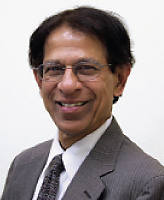The oldest baby boomer turned 65 last year. Over the next three decades, we will witness the largest increase in the number of people over age 65 in the history of mankind. At the same time, there is a nearly universal perception that aging means disease, disability, deterioration, and degeneration. The resulting stigma associated with aging—that is, ageism—has led to considering older people a burden on society, especially in terms of rising costs of Social Security and health care. Some people dub the aging of the population as the “silver tsunami.” Yet, there is a growing number of older adults who are functioning at a high level and contributing to society in a major way.
Are these successful agers? A question arises about how we may define successful aging. Traditional objective definitions have emphasized absence of physical and cognitive disabilities. New data suggest that for most senior citizens, subjective quality of life is more important than these objective measures, and it is predicted less by physical health and more by psychosocial protective factors such as resilience, optimism, and mental/emotional status. Whereas physical health and some aspects of cognitive function (such as working memory and psychomotor speed) decline, mental and psychosocial functioning tend to improve with aging. This paradoxical increase in self-rated quality of life in older adults may be due, in part, to the wisdom of aging—that is, age-associated wisdom may help to overcome the negative effects of physical disabilities and social stressors that are common in late life and lead to improved mental health and psychosocial functioning. The decades of experience that an older individual has gathered may lead to wisdom, emotional equanimity, rational decision making, and mature creativity.
Neuroscience research during the past 15 years has demonstrated neuroplasticity of aging—that is, the fact that brain growth and development continue into old age. Moreover, such a positive outcome is related not so much to the genes we inherit from our parents, as to our own behavior, attitudes, and environment. Studies show that older individuals who keep their bodies and brains active are happier and more productive than those who don’t. The seniors who learn and teach can be wonderful mentors for younger generations.
Old age is not necessarily the age for retirement, but can be a time for second careers and new ventures. Some seniors prefer volunteer work, whereas others welcome paid jobs. Older workers tend to be hard working, conscientious, reliable, and collegial and take fewer sick days off than those who are many years younger.
Successful aging is not restricted to people without mental illness. Our studies have found that older adults with schizophrenia experience less psychiatric morbidity and better self-rated quality of life than younger patients. The older patients are more likely to be adherent to medications and less likely to smoke or abuse substances. Sustained remission is seen in about 10 percent of middle-aged and older persons with schizophrenia living in the community. Predictors of remission in schizophrenia include social support, being or having been married, better premorbid functioning, and early initiation of treatment. These findings challenge the notion that schizophrenia is a characteristically deteriorating illness even in later life.
Strategies to enhance successful aging include restricting calories (for example, through intermittent fasting with plenty of water), exercising (especially aerobic), stopping smoking and substance use, eating so-called super foods (for example, broccoli, cabbage, cauliflower, spinach, vitamin E, and curcumin) that are rich in antioxidants, and obtaining appropriate health care.
Equally important are cognitive and psychological strategies such as developing positive attitudes and resilience, learning new skills (for example, speaking another language, solving crossword puzzles, and using computers), engaging in activities that are stimulating without being too stressful, focusing on new hobbies, and minimizing stress. An important principle to remember is that it is never too early or too late to start on the path to successful cognitive and emotional aging.
As psychiatrists, we can promote successful aging in ourselves as well as our patients. As a society, we can turn the dreaded silver tsunami into a welcoming golden wave in which older people are happy and productive, making important contributions to their own welfare as well as that of younger generations.
Dilip V. Jeste, M.D., is the Estelle and Edgar Levi Chair in Aging, director of the Sam and Rose Stein Institute for Research on Aging, and distinguished professor of psychiatry and neurosciences at the University of California, San Diego. He also is president-elect of APA. He is senior co-editor of Successful Cognitive and Emotional Aging (American Psychiatric Publishing). The book may be ordered at http://appi.org/SearchCenter/Pages/Search-Detail.aspx?ItemId=62351 . APA members can purchase the book at a discount. 


